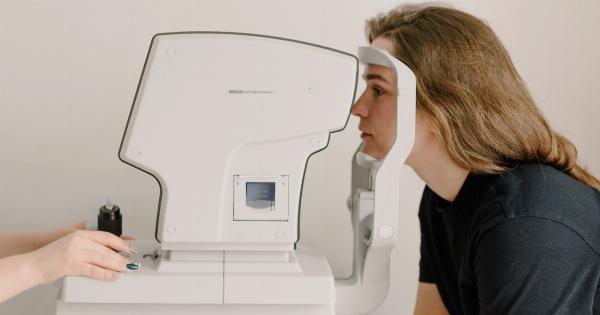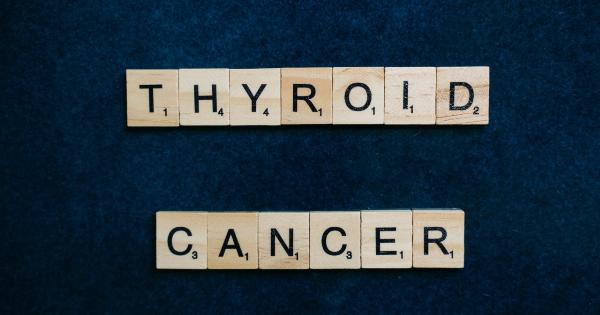Iodine is an essential mineral that plays a significant role in the proper functioning of the thyroid gland. This small butterfly-shaped gland located in the neck secretes hormones that regulate the body’s metabolism, growth, and development.
Since your body cannot produce iodine on its own, it is crucial to obtain this nutrient through your diet or supplements.
Unfortunately, iodine deficiency is a global health concern, affecting millions of people worldwide. In this article, we will explore the signs that may indicate you are lacking iodine and why it is important to address this deficiency promptly.
1. Fatigue and Weakness
Feeling consistently fatigued or experiencing weakness in your muscles might be a sign of iodine deficiency. Iodine is involved in the production of thyroid hormones that help regulate energy levels.
When there is a lack of iodine, it can lead to an imbalance in these hormones, resulting in fatigue and weakness.
2. Weight Gain
If you are experiencing unexplained weight gain or struggling to lose weight despite efforts, iodine deficiency could be a contributing factor. The thyroid hormones produced with the help of iodine play a crucial role in regulating metabolism.
When there is an insufficient amount of iodine, the thyroid gland becomes less efficient in controlling metabolism, leading to weight gain.
3. Swelling in the Neck
An enlarged thyroid gland, also known as a goiter, is a visible sign of iodine deficiency. The lack of iodine prevents the thyroid gland from producing enough hormones to maintain its normal size.
This can result in the gland swelling, causing a noticeable lump or protrusion in the neck.
4. Dry and Flaky Skin
Iodine deficiency can also affect the health and appearance of your skin. If you notice dryness and flakiness, it may be a symptom of insufficient iodine levels.
This is because iodine helps regulate sweat glands, and low iodine levels can lead to a reduction in perspiration, resulting in drier skin.
5. Hair Loss
Thinning hair or experiencing hair loss beyond the usual shedding may indicate an iodine deficiency. Adequate iodine levels are necessary for healthy hair growth, and without it, the hair follicles can become weak and prone to damage.
6. Impaired Cognitive Function
Iodine is essential for proper brain development and cognitive function.
Inadequate iodine intake can impair mental function and lead to issues like poor concentration, difficulty remembering, and lowered IQ levels, particularly in children and pregnant women. It is important to ensure sufficient iodine intake during pregnancy to support a baby’s brain development.
7. Increased Sensitivity to Cold
Individuals lacking iodine may experience heightened sensitivity to cold temperatures. The thyroid hormones produced with iodine regulate body temperature and help generate heat.
When thyroid hormone levels are disrupted due to iodine deficiency, it can result in feeling unusually cold, even in normal room conditions.
8. Menstrual Irregularities
Iodine deficiency can disrupt the hormone balance in the body, leading to menstrual irregularities in women. Issues like heavier or lighter periods, irregular cycles, or even infertility may be linked to insufficient iodine levels.
9. Muscle Weakness and Joint Stiffness
Inadequate iodine intake can also impact muscle strength and joint flexibility. Iodine is involved in maintaining healthy connective tissues and lubricating joints.
A deficiency can contribute to muscle weakness and stiffness in the joints, potentially leading to discomfort and reduced mobility.
10. Impaired Thyroid Function
The most significant indication of iodine deficiency is the impact on thyroid function. The thyroid gland requires iodine to produce thyroid hormones, which regulate many bodily processes.
Insufficient iodine can lead to an underactive thyroid, known as hypothyroidism, resulting in a range of symptoms, including fatigue, weight gain, depression, and reduced mental clarity.
If you experience any of these signs, it is important to consult with a healthcare professional to determine if iodine deficiency is a potential concern.
They can conduct appropriate tests to measure your iodine levels and recommend dietary changes or iodine supplements to address the deficiency.
It is important to note that while iodine deficiency is a concern in certain regions, excessive iodine intake can also have adverse effects on health.
Therefore, it is always advised to seek professional guidance to ensure you are obtaining the appropriate amount of iodine for optimal health.































